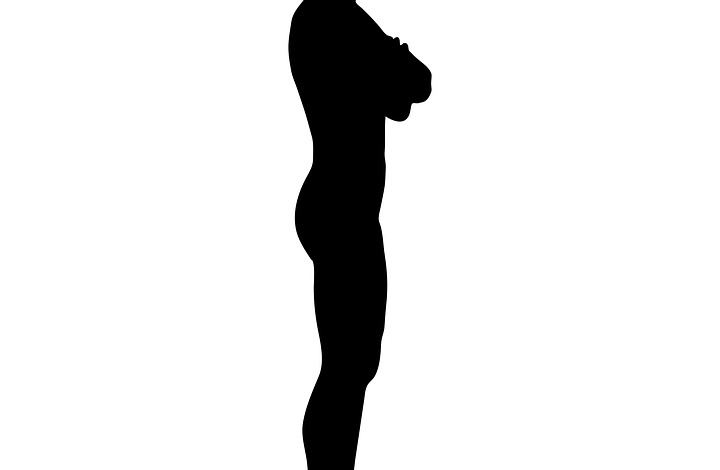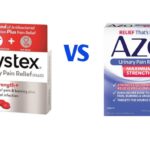Why Can’t You Lay Down After Taking Uribel?

Uribel is a medication used to relieve discomfort and pain associated with urinary tract infections (UTIs) and other urinary tract-related conditions. It contains four active ingredients: methenamine, sodium salicylate, phenyl salicylate, and hyoscyamine sulfate.
Methenamine is a urinary antiseptic that works by killing bacteria in the urine, while sodium salicylate and phenyl salicylate are non-steroidal anti-inflammatory drugs (NSAIDs) that help reduce inflammation and pain. Hyoscyamine sulfate is a urinary tract antispasmodic that helps relieve urinary urgency and frequency.
Uribel is typically prescribed for the symptomatic relief of pain, burning, and discomfort associated with UTIs, cystitis (inflammation of the bladder), urethritis (inflammation of the urethra), and other urinary tract-related conditions. It is available in tablet form and is taken orally.
It is important to note that Uribel is not a treatment for the underlying infection or condition causing the symptoms, and should not be used as a substitute for appropriate medical treatment. It is also not recommended for people with certain medical conditions, such as glaucoma or severe liver or kidney disease. As with any medication, it is important to talk to a healthcare provider before taking Uribel to ensure it is safe and appropriate for individual needs.
The generic name for Uribel is methenamine, sodium phosphate monobasic, phenyl salicylate, methylene blue, and hyoscyamine sulfate
How is Uribel Taken
Uribel is typically taken orally, usually 4 times a day or as directed by a doctor. It is important to take Uribel with a full glass of water and to avoid lying down for at least 10 minutes after taking the medication to prevent stomach upset. Uribel should be taken on an empty stomach, at least 1 hour before or 2 hours after a meal.
The dosage and frequency of Uribel may vary depending on the patient’s medical condition, response to treatment, and other medications they may be taking. It is important to follow the dosage instructions provided by a doctor or pharmacist and to not exceed the recommended dosage.
Uribel tablets should be swallowed whole and not chewed, crushed, or broken. It is important to store Uribel at room temperature and to keep it out of reach of children and pets. If a dose is missed, it should be taken as soon as remembered. However, if it is almost time for the next dose, the missed dose should be skipped and the regular dosing schedule should be resumed. It is important not to double the dose to make up for a missed dose.
Why can’t you lay down after taking Uribel?
Laying down immediately after taking Uribel may result in the medication not being fully absorbed or potentially causing gastrointestinal side effects such as heartburn or reflux.
While no specific instruction states one cannot lie down after taking Uribel, it is generally recommended that you remain upright for at least 10-15 minutes after taking Uribel to ensure proper absorption of the medication. It is always best to follow the specific instructions provided by your healthcare provider or on the medication label.
Uribel Side Effects
Uribel is a medication used to relieve symptoms associated with urinary tract infections (UTIs) and other urinary tract disorders. While Uribel can effectively treat symptoms, it may also cause side effects in some individuals. Some of the most common side effects of Uribel include:
1. Nausea and vomiting
2. Dizziness or lightheadedness
3. Dry mouth or throat
4. Headache
5. Constipation
6. Blurred vision or eye irritation
7. Skin rash or itching
Less common but more serious side effects of Uribel can also occur, including:
1. Severe stomach pain or cramping
2. Difficulty breathing or swallowing
3. Jaundice (yellowing of the skin or eyes)
4. Fainting or confusion
5. Seizures
If you experience any of these serious side effects after taking Uribel, seek medical attention immediately. It is important to note that Uribel may interact with other medications, so it is important to inform your healthcare provider of any medications you are currently taking before beginning treatment with Uribel.
Uribel Drug Interaction
Uribel is known to interact with a number of drugs. Patients should inform their healthcare provider about all the medications they are taking, including prescription, over-the-counter, and herbal products to avoid potential drug interactions. Some of the drugs that are known to interact with Uribel include:
1. Anticholinergic medications – taking these medications along with Uribel can increase the risk of anticholinergic side effects such as dry mouth, constipation, blurred vision, and difficulty urinating.
2. Medications that increase urine flow (diuretics) – Uribel may decrease the effectiveness of diuretics by reducing urine output.
3. Sodium polystyrene sulfonate – taking Uribel along with this medication can reduce the effectiveness of both drugs.
4. Potassium supplements – taking Uribel with potassium supplements can increase the risk of high potassium levels in the blood.
5. Drugs that affect the liver – Uribel may affect liver function tests, so it’s important to inform your healthcare provider if you’re taking any medications that may affect the liver.
6. Other medications that affect the urinary system – Uribel may interact with other drugs that affect the urinary system, such as medications for overactive bladder, urinary tract infections, or bladder spasms.
It is important to talk to a healthcare provider about any potential drug interactions before starting Uribel or any other medication.
Storage
Uribel should be stored at room temperature between 15°C and 30°C (59°F and 86°F) in a tightly closed container away from moisture, heat, and light. It is important to keep Uribel out of reach of children and pets.
Do not use Uribel after the expiration date printed on the packaging. If you have any unused Uribel tablets or capsules, do not flush them down the toilet or dispose of them in the trash. Instead, check with your pharmacist or healthcare provider to determine the proper way to dispose of the medication.





